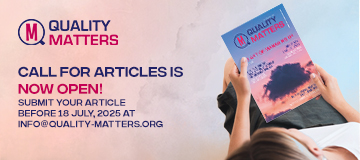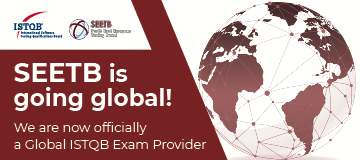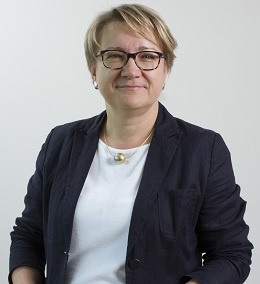
Dr Klaudia Dussa-Zieger
ISTQB® President, GermanyDr. Klaudia Dussa-Zieger is the team leader responsible for consulting at imbus. She is particularly interested in test management, the continuous improvement of the test process and the professional training and further education of testers.
For more than 20 years, she has been active as a trainer for the ISTQB® Certified Tester Foundation and Advanced Level and also as a lecturer for software testing at the University of Erlangen-Nuremberg.
Since March 2009, Klaudia Dussa-Zieger has been chairwoman of the DIN working committee "System and Software Engineering" and is actively involved in the creation of standards at international level. For more than 10 years she is member of the German Testing Board (GTB). Currently, she is the President of the ISTQB, where she heads the AI Taskforce.
Prompt Engineering for Software Testing
Content:
This workshop offers a comprehensive introduction to prompt engineering. Participants will explore the fundamental components of prompts, common prompt patterns, and effective prompting techniques. All concepts will be illustrated through examples specifically tailored to the domain of software testing.
In addition, the workshop includes a series of hands-on exercises that allow participants to observe firsthand how variations in prompt design can influence the output of large language models (LLMs). By experimenting with multiple LLMs, attendees will also gain insights into how different models respond uniquely to the same prompts
Target Audience:
This introductory workshop is designed for individuals interested in learning about various prompt patterns and techniques. It is ideal for those who want to gain hands-on experience with how different prompt formulations influence the behavior and output of large language models (LLMs).
Prerequisites:
Participants need to bring a laptop or tablet with active access to at least one - preferably two - LLMs, such as ChatGPT-4.0, Gemini, or an other LLM. A internet connection to access the LLMs is required throughout the workshop.

Rik Marselis
Sogeti, the NederlandsRik Marselis is principal quality consultant at Sogeti in the Netherlands. He is a highly regarded presenter, trainer, author, consultant and coach who supported many organizations and people in improving their quality engineering & testing practice by providing useful tools & checklists, practical support and having in-depth discussions. His presentations are always appreciated for their liveliness, his ability to keep the talks serious but light, and his use of practical examples with humorous comparisons.
Rik is an accredited trainer for TMAP, ISTQB and TPI certification training courses, but also he has created and delivered many bespoke workshops and training courses. For example, on quality engineering for Intelligent Machines and DevOps. He is the chairman of the TMAP special interest group.
Rik is a fellow of Sogeti’s R&D network SogetiLabs. These R&D activities result in presentations, books, white-papers, articles, podcasts and blogs about IT in general and quality engineering & testing in particular. He is a co-author of the TMAP book “Quality for DevOps teams” and contributor to the www.TMAP.net body of knowledge for quality engineering & testing.
In 2022 Rik received the ISTQB Software Testing Excellence Award and the EuroSTAR Best Tutorial Award.
Exploratory Testing: Pair-Testing with Your GenAI
This is a new tutorial, based on recent research of me and my colleagues, that is about exploratory testing. According to the TMAP flavor of ET it must be done in pairs (two people) but now we will do it together with the GenAI tool (the participants can choose the GenAI tool themselves, maybe ChatGPT, Copilot or whatever). We will use the GenAI tool for generating test ideas, checking results and keeping track of testresults and reporting.
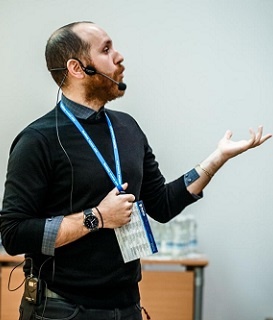
Baris Sarialioglu
TesterYou, TurkeyBaris is an IT professional with 20+ years of experience as a Consultant and a Software Engineer for many different organizations. He has published a number of papers and books within the Software Testing profession and contributes to the field by regularly attending conferences as a public speaker.
Test Automation Strategies with Design Thinking
Key Topics:
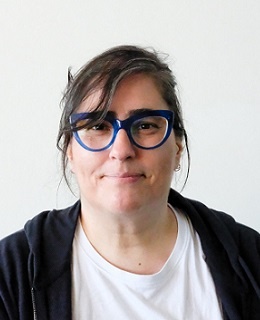
Almudena Daehin
SCRM – Lidl International Hub, SpainAlmudena Vivanco is a seasoned performance engineer with over 20 years of experience in high-traffic systems. Currently, she serves as Principal Performance Engineer at SCRM – Lidl International Hub in Barcelona. Known for her expertise in chaos engineering, she has delivered talks and workshops at various conferences, including PulpoCon and DevOpsCon. Beyond her professional endeavours, Almudena organizes WebPerf BCN and is an active member of the WOPR (Workshop on Performance and Reliability) community. Her passion for mathematics and science, combined with her dynamic approach to system resilience, makes her a prominent figure in the DevOps and performance engineering communities.
Chaos Testing: The guilty pleasure of breaking stuff
This hands-on workshop introduces participants to the fundamentals of Chaos Engineering, emphasizing the importance of building resilient systems by intentionally introducing failures. Utilizing tools like Chaos Mesh and LitmusChaos within a Kubernetes environment, attendees will learn to simulate real-world disruptions and observe system behaviors. The session includes deploying sample applications, setting up chaos experiments, and analyzing outcomes to strengthen system robustness.

Mette Bruhn-Pedersen
Safe Journey, DenmarkMette Bruhn-Pedersen has extensive experience in software testing, having worked as a tester, test manager, and test leader in both classic and agile environments. Passionate about quality and testing, she has actively contributed to the profession through her roles in the Danish Software Testing Board (DSTB) and the International Software Testing Qualification Board (ISTQB®). As the product owner of the ISTQB Agile Test Leadership at Scale (ATLaS) certification, she led its development alongside a dedicated task force.
Beyond testing, Mette is an experienced agile transformation leader and coach, helping organisations enhance their agility with various frameworks. Her expertise spans from guiding agile newcomers to advancing seasoned teams. She focuses on empowering individuals through training and coaching, facilitating successful transitions to new roles.
The Art Of Conflict And Collaboration
Conflicts are an inevitable part of professional life, especially in software testing. How we handle them determines whether they become roadblocks or opportunities for growth. In modern organisations, quality assistance as described in the ISTQB® Agile Test Leadership at
Scale body of knowledge fosters a culture of shared responsibility for testing and quality. To
make this approach successful, it is essential to transform conflicts into opportunities for
collaboration and improvement.
This interactive workshop provides participants with practical techniques to navigate workplace conflicts, shift from reactive to proactive responses, and strengthen trust-based relationships.
Through engaging exercises and interactive discussions, participants will learn to identify conflict patterns, recognise their own role in conflict dynamics, and develop strategies to create positive change.
Designed for professionals at all levels, this workshop provides actionable insights to enhance
conflict resolution skills and build a more collaborative work environment.
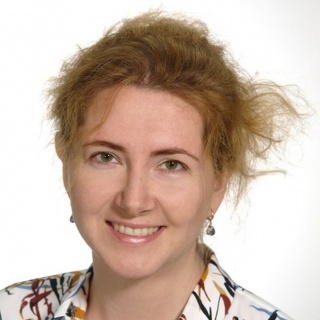
Maryna Didkovska
EPAM Systems HungaryMaryna Didkovska is a Quality Engineering Director at EPAM Systems. As a Test Manager, Delivery manager and Software automation engineer, Maryna has managed teams to build scalable testing process on a projects with over 600 participants , develop testing ecosystems on Enterprise level, find solutions to quality architectural challenges, and coached others be experts and leaders. Being PhD in Software reliability domain, she leverages her academic background with hands-on work experience in software automation testing and programming to interact with team members and clients all over the globe to improve software quality continuously and drive digital transformations. Maryna is a regular speaker at technical and management conferences, covering a variety of testing topics.
Maryna is passionate about making quality improvements process transparent and trackable.
Don’t Say Hello To LLM: Dive Into The System Under Test
This tutorial is designed to demystify the core workings of Large Language Models (LLMs), focusing on the process of converting human language into machine-understandable formats, the key components of neural networks used in LLMs, and their applications in real-world AI systems. Building an efficient testing strategy for AI-infused applications is impossible without a thorough understanding of the system under test.
Participants will dive deep into core components of the flow, such as tokenization, the embedding process, and the transformer block with the self-attention mechanism and MLP. On a practical level, you will see the impact of both good and bad prompts and how they can influence your budgets.
You’ll also need to recall from your university background how to multiply matrices. We will conduct a thorough analysis of the nature of LLMs, revisiting the math under the hood to reveal that there is no magic behind them. There is no “God in the machine,” but rather a complex network of connections, vast amounts of data, and biased datasets driving their behavior.
Finally, we will discuss how to build an effective test strategy for AI-infused applications, those with a natural language layer. The focus will be on testing approaches that are specific to these types of applications, highlighting their challenges and limitations.
This session is ideal for professionals with a background in software development, AI, or quality engineering, who are looking to deepen their understanding of LLM architectures and applications.
What you will learn:
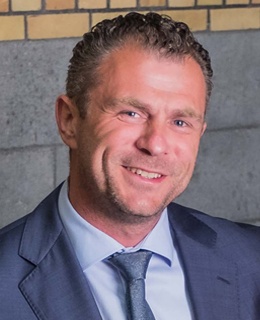
Michaël Pilaeten
AE, BelgiumBreaking the system, helping to rebuild it, and providing advice and guidance on how to avoid problems. That is Michael in a nutshell. With 15 years of experience in test consultancy in a variety of environments, he has seen the best (and worst) in software development.
In his current role as Learning & Development Manager, he is responsible for guiding the company’s consultants, partners and customers on their personal and professional path towards excellence.
Better software based on Quality Engineering
This half-day tutorial dives into the fundamental distinctions between Quality Engineering, Quality Control, Quality Assurance, and Testing - clarifying roles, responsibilities, and their impact across the software development lifecycle. Participants will explore various dimensions of quality through recognized models such as the Devil’s Triangle and ISO frameworks, gaining insights into how quality is perceived, measured, and often misunderstood in real-world projects.
The tutorial then shifts focus to the root causes of poor quality, including vague requirements, inconsistent documentation, and undisciplined coding practices. Through the lens of "shift left" thinking, participants will discover actionable techniques to improve quality earlier in the development process. Topics include effective elicitation and slicing methods, robust coding and review practices, and strategies for identifying and resolving both technical and interpersonal conflicts.
This tutorial is ideal for developers, testers, and team leads looking to build a shared language and practical approach for embedding quality into every phase of software delivery.
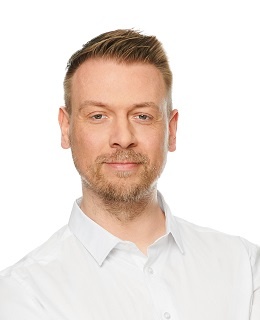
Tomasz Klepacki
Automatyzacja.IT, PolandTomasz is a Test Automation Lead/Engineer with over 14 years of experience in designing, developing, and maintaining automated tests for web applications, mobile applications, and performance testing. His expertise spans across diverse industries, including insurance, maritime, information management, and e-commerce.
Currently, he focuses on designing and implementing test strategies as well as developing test infrastructure and frameworks for the Signal Ocean project. A significant part of his work involves creating efficient CI/CD processes, enabling rapid delivery pipelines, and enhancing the observability of projects.
As a passionate advocate of test automation, new technologies, and Test-Ops practices, Tomasz actively contributes to the testing community. He frequently participates as a speaker and trainer at industry events and conferences. Additionally, he runs his own blog, automatyzacja.it and podcast Testers Unplugged where he shares insights and best practices related to software testing.
Load Tests Automation in k6 tool
In the tutorial, Tomasz will introduce the k6 tool and demonstrate its practical application in load testing. He will highlight its key benefits and explain why, in his view, k6 stands out as one of the most comprehensive yet user-friendly tools designed for implementing performance tests. The sessions will revolve around a specific test scenario that participants will automate and refine, providing insights into the functionalities of the k6 tool and the k6 Cloud platform used for test execution. Additionally, they will implement a customized solution for visualizing metrics from load test results, leveraging InfluxDB and Grafana.
Agenda:
What you will learn:

